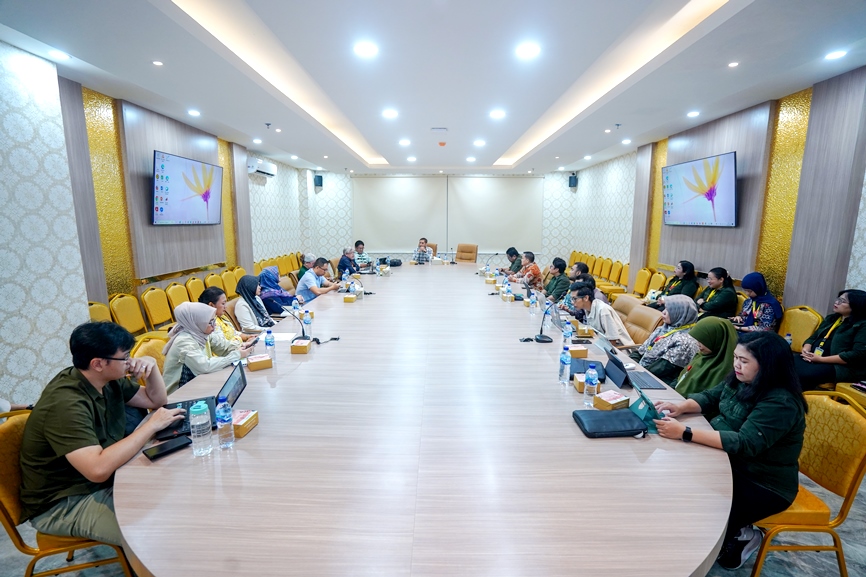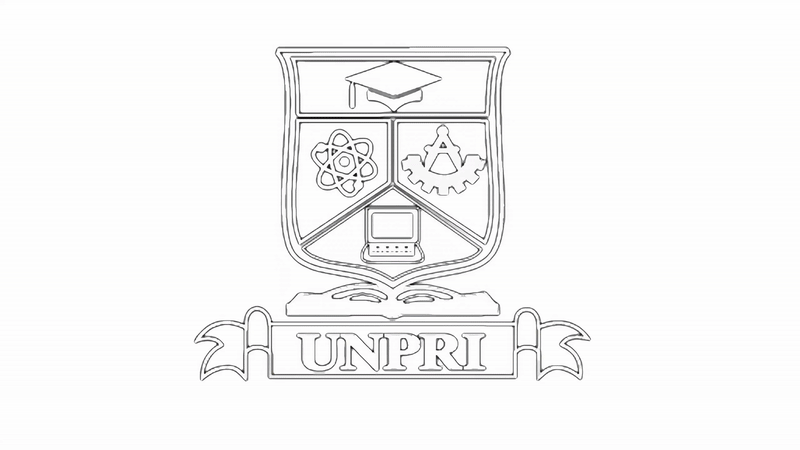UNPRI Presents Two National Experts to Discuss "The Future of Digital Medicine and Health"
UNPRI Presents Two National Experts to Discuss "The Future of Digital Medicine and Health"

The medical world is rapidly moving into an era of digital transformation. This was the main focus of a Focus Group Discussion (FGD) at Universitas Prima Indonesia (UNPRI) titled "The Future of Digital Medicine and Health" on Monday (July 21, 2025). It featured two leading speakers in the fields of medical technology and digital biotechnology: Prof. Ir. Endra Joelianto, Ph.D., SMIEEE from the Bandung Institute of Technology and Dr. Arjon Turnip from Padjadjaran University.
In the first session of the FGD, Prof. Endra Joelianto raised the theme "The Rise of Modern Medicine," exploring how the evolution of modern medicine has shifted from a spiritual and philosophical approach to an evidence-based scientific approach. He emphasized the role of the scientific revolution in shaping the understanding of anatomy and physiology, and the development of cutting-edge medical technology.
Furthermore, Prof. Endra explained how Artificial Intelligence (AI) and Machine Learning are now the backbone of the future of medical laboratories. According to him, this technology enables more accurate, faster, and personalized diagnoses tailored to each patient's genetic profile. However, he also highlighted the importance of continuing education for laboratory personnel to efficiently manage data and advanced technology.
Some of the advanced research topics highlighted in this session included engineering approaches to nailfold microcirculation analysis, the application of terahertz (THz) technology in biotechnology, and composite wound segmentation models based on traditional and deep learning methods.
“The future of healthcare promises extraordinary transformation, but realizing it requires bold investments in infrastructure, education, and equity,” Prof. Endra emphasized.
In the second session, moderated by Dr. Arjon Turnip, Chair of the IEEE Indonesia Section CSS/RAS Joint Chapter and Head of the Center for Mechatronics, Energy, and Biomedicine Studies at Padjadjaran University. In his presentation, entitled “Future Technology in Biotechnology for Medical and Health,” Dr. Dr. Arjon discussed the integration of AI, IoT, Big Data, and Robotics technologies to create a smart, humane, and socially just healthcare ecosystem in line with Japan's Society 5.0 vision.
He outlined emerging innovation trends for 2025, ranging from manufacturing automation and autonomous vehicles to telemedicine and AI-based diagnostics.
In the healthcare sector, these technologies enable real-time patient monitoring and increasingly accurate diagnoses. However, Dr. Arjon also highlighted implementation challenges, such as the lack of digital skills among the workforce and the high initial cost of technology investment, especially for MSMEs.
As a solution to the challenges of implementing advanced technology in the healthcare and industrial sectors, Dr. Arjon encouraged adjustments to the educational curriculum with a greater emphasis on STEM (Science, Technology, Engineering, and Mathematics) fields, as well as technology-based job training to prepare human resources for the digital era.
Furthermore, he emphasized the importance of collaborative synergy between educational institutions, industry, and the government to create a sustainable and inclusive innovation ecosystem.
On the occasion, Dr. Arjon also shared several research results and medical technology innovations from the laboratory he leads. Some of these include the development of a Smart Holter Recorder based on artificial intelligence and the Internet of Things (AI & IoT), a brain activity detection system to identify drug abuse, and 2D and 3D brain mapping technology using EEG signals.
In addition, he introduced an interactive medical robot designed to accompany isolated patients, as well as an innovative smart drawer based on facial recognition, to support the efficiency and security of medical equipment storage. This research demonstrates the concrete direction of collaboration between engineering science and the practical needs of the medical world in the digital age.
The FGD emphasized that the future of healthcare cannot be separated from digital technology. However, realizing this vision requires multidisciplinary preparedness, encompassing technology, human resources, regulations, and cross-sector synergy. With a collaborative spirit, technology-based healthcare transformation will not only improve service efficiency but also have a broader and more inclusive social impact.
UNPRI THE BEST CHOICE Interested in being part of UNPRI's next great graduates?
- Follow Facebook
- Follow Instagram
- Follow Tiktok
- Follow Youtube
Follow Our Social Media Accounts UNPRI The Best Choice!!
News About "Universitas Prima Indonesia:"
2025-07-24 09:09:28 by Candra Julius Sinaga
UNPRI Hadirkan Dua Pakar Nasional Bahas Topik “The Future of Digital Medicine and Health”
2025-07-24 09:09:28 by Candra Julius Sinaga
UNPRI Hadirkan Dua Pakar Nasional Bahas Topik “The Future of Digital Medicine and Health”
2025-07-24 09:09:28 by Candra Julius Sinaga
UNPRI Hadirkan Dua Pakar Nasional Bahas Topik “The Future of Digital Medicine and Health”
2025-07-24 09:09:28 by Candra Julius Sinaga
UNPRI Hadirkan Dua Pakar Nasional Bahas Topik “The Future of Digital Medicine and Health”
2025-07-24 09:09:28 by Candra Julius Sinaga
UNPRI Hadirkan Dua Pakar Nasional Bahas Topik “The Future of Digital Medicine and Health”
Other News
2025-07-24 09:09:28 by Candra Julius Sinaga
UNPRI Hadirkan Dua Pakar Nasional Bahas Topik “The Future of Digital Medicine and Health”
2025-07-24 09:09:28 by Candra Julius Sinaga
UNPRI Hadirkan Dua Pakar Nasional Bahas Topik “The Future of Digital Medicine and Health”
2025-07-24 09:09:28 by Candra Julius Sinaga
UNPRI Hadirkan Dua Pakar Nasional Bahas Topik “The Future of Digital Medicine and Health”
2025-07-24 09:09:28 by Candra Julius Sinaga
UNPRI Hadirkan Dua Pakar Nasional Bahas Topik “The Future of Digital Medicine and Health”
2025-07-24 09:09:28 by Candra Julius Sinaga
UNPRI Hadirkan Dua Pakar Nasional Bahas Topik “The Future of Digital Medicine and Health”












